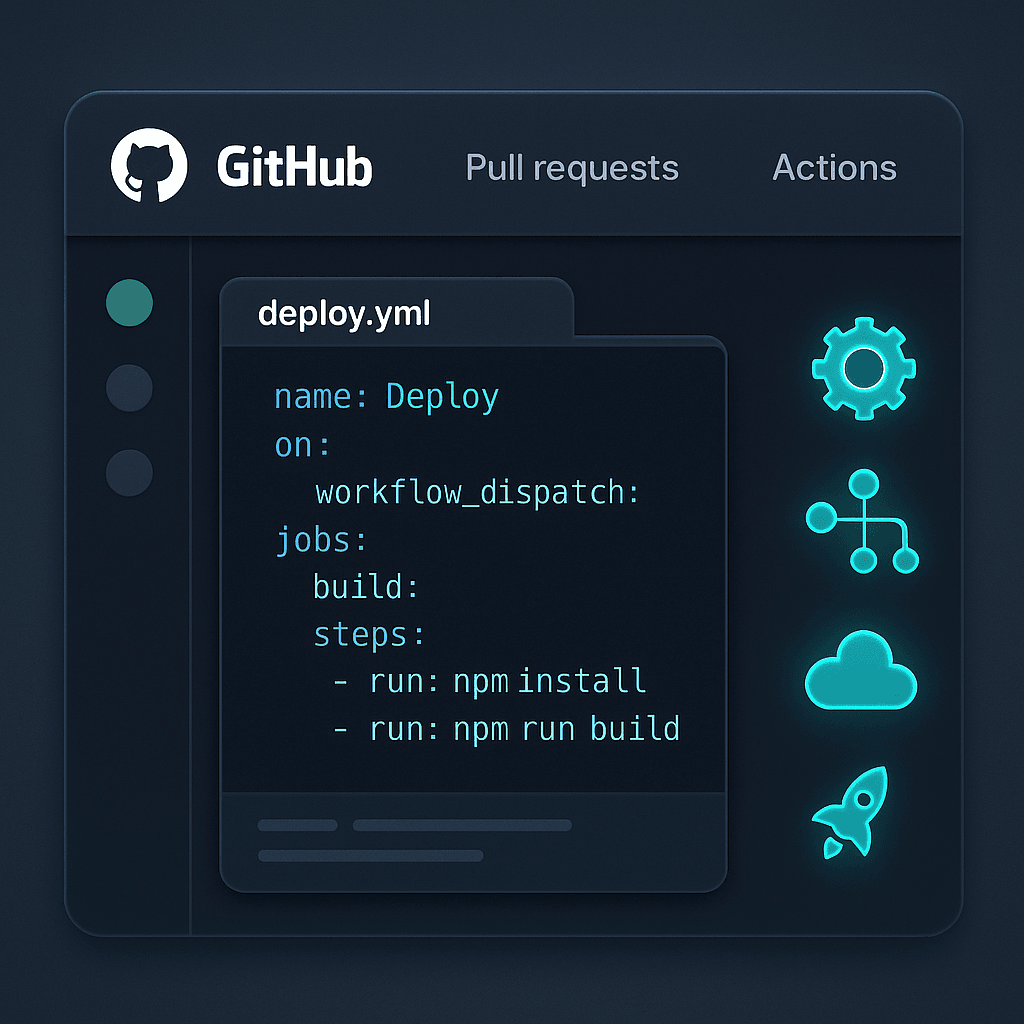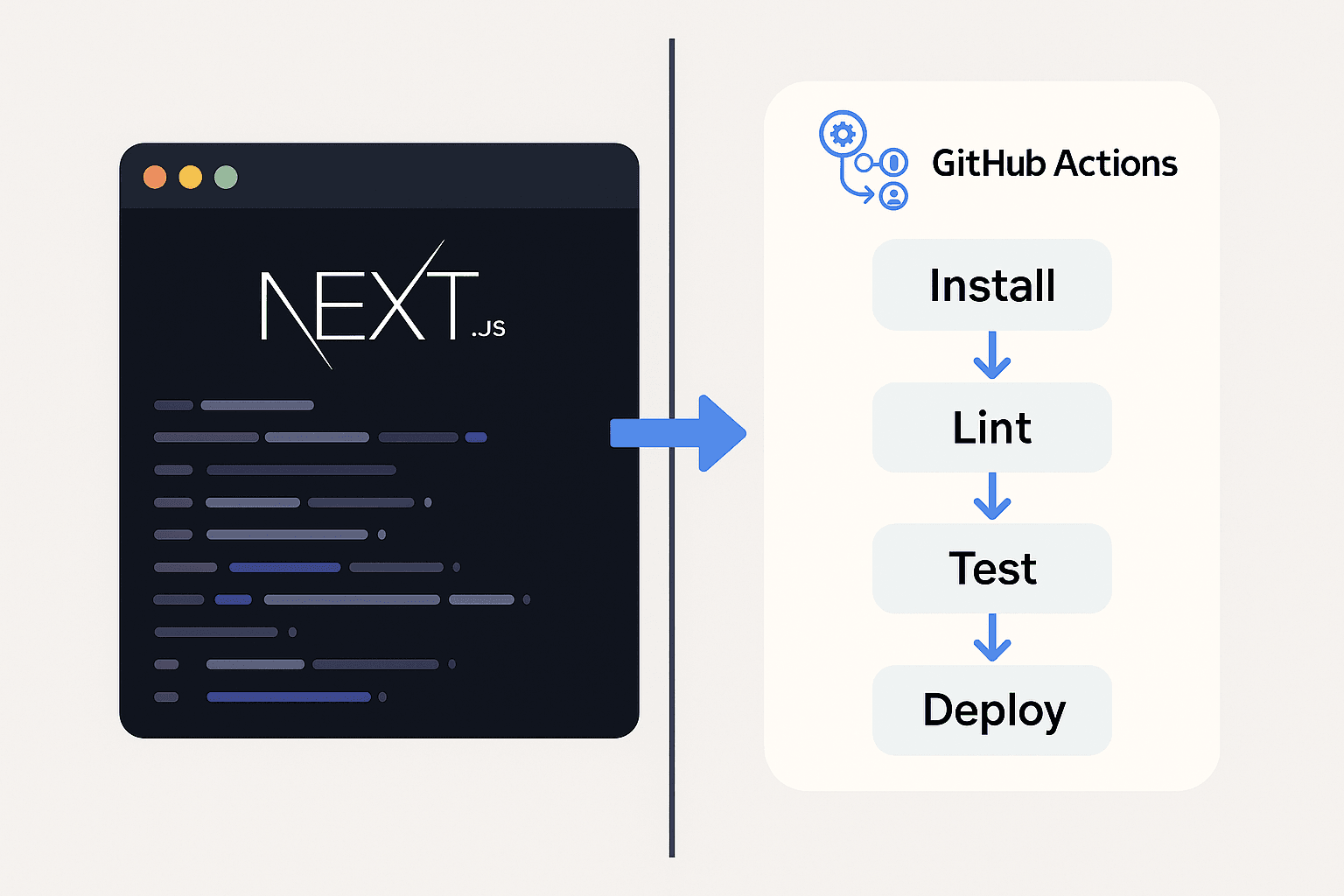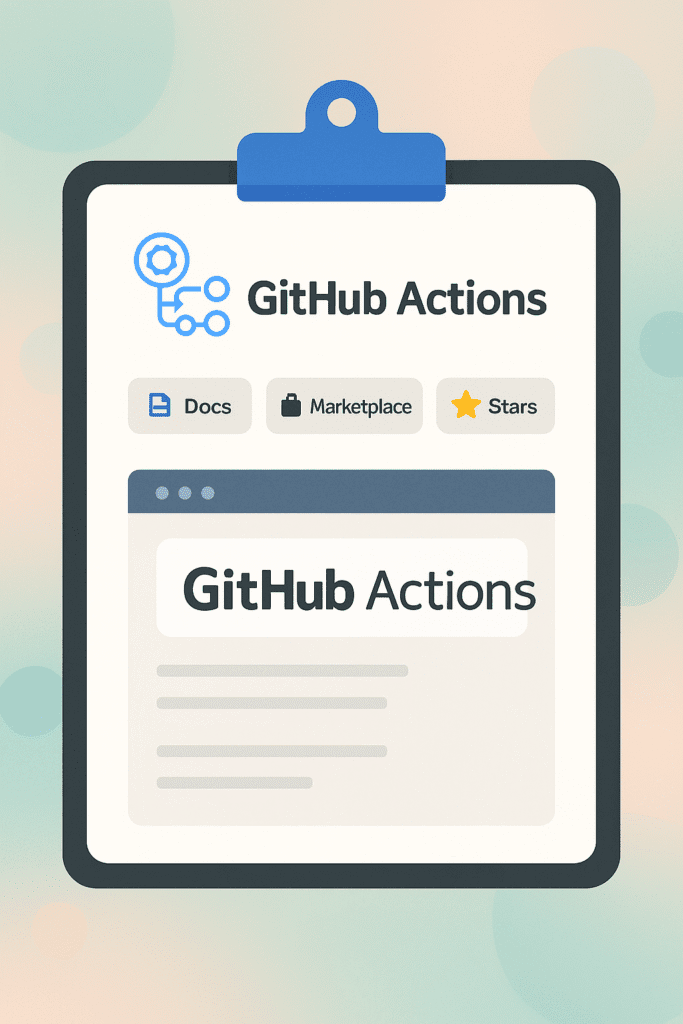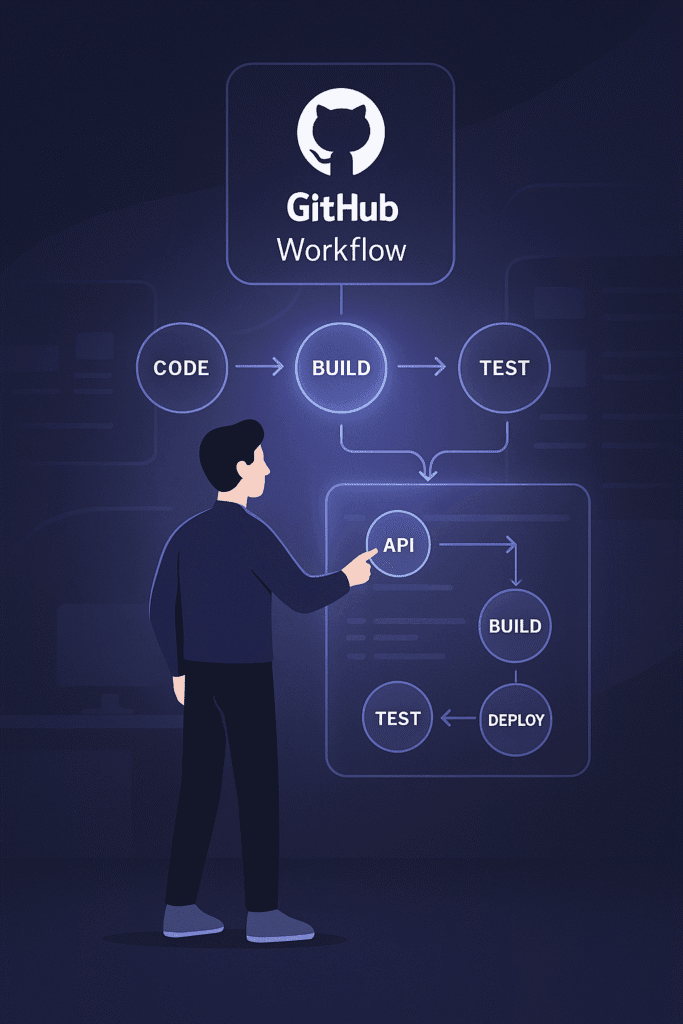
Why Frontend Developers Should Learn GitHub Actions in 2025
With frontend development getting more complicated in 2025, the differences between frontend and DevOps are becoming hard to tell. These days, frontend developers must also take care of building and testing as well as the deployment of web applications. That’s why GitHub Actions can be very useful.
They can use GitHub Actions to handle different stages in their development process straight from the GitHub repository. Any frontend developer who has not adopted it yet may find themselves behind others.
Need Fast Hosting? I Use Hostinger Business
This site runs on the Business Hosting Plan. It handles high traffic, includes NVMe storage, and makes my pages load instantly.
Get Up to 75% Off Hostinger →⚡ 30-Day Money-Back Guarantee
🛠️ What is GitHub Actions?
GitHub Actions is a CI/CD (Continuous Integration / Continuous Deployment) service built directly into GitHub. It allows you to:
- Run automated tests
- Lint code
- Build projects
- Deploy to platforms (like Vercel, Netlify, Firebase)
- Schedule tasks
All using simple YAML configuration files stored in your repository.

🥇 Benefits for Frontend Developers
1. Automated Builds & Deployments
Push your code, and your project gets deployed. Whether it’s a static site on Netlify or a complex Next.js app on Vercel, Actions can handle it.
2. Run Tests Automatically
Don’t rely on manual QA. You can trigger your Jest, Cypress, or Playwright tests every time you push to a branch.
3. Pre-merge Checks
Catch errors before merging a PR. Set up Actions to check for linting issues, broken links, or type errors (e.g., using TypeScript).
4. Multi-Platform Integration
Connect your frontend app with backend APIs, CMS platforms, or third-party services like Slack, Discord, or email via webhooks.
5. Better Collaboration
Teams can review test results, deployment previews, and performance metrics without leaving the pull request.
⚖️ Real-Life Use Case
Let’s say you’re building a portfolio site with Next.js. With GitHub Actions, you can:
- Automatically install dependencies on every push
- Run lint checks and unit tests
- Build the project
- Deploy it to Vercel or Cloudflare Pages

📖 Resources to Get Started

🤔 Final Thoughts
GitHub Actions empowers frontend developers to take control of automation without needing a DevOps engineer. It simplifies your workflow, reduces manual errors, and ultimately helps ship better code faster.
In 2025, knowing GitHub Actions isn’t just a plus—it’s a necessity.

❓ FAQ
Q: Can GitHub Actions deploy my frontend apps?
A: Yes. You can deploy to Vercel, Netlify, Firebase Hosting, or any other platform that supports CI/CD.
Q: Is GitHub Actions free?
A: GitHub Actions is free for public repos and includes generous limits for private repos on free/Pro plans.
Q: What languages or frameworks does it support?
A: All frontend stacks including React, Vue, Angular, Svelte, and even static sites built with Hugo or Astro.

🚀 Let's Build Something Amazing Together
Hi, I'm Abdul Rehman Khan, founder of Dev Tech Insights & Dark Tech Insights. I specialize in turning ideas into fast, scalable, and modern web solutions. From startups to enterprises, I've helped teams launch products that grow.
- ⚡ Frontend Development (HTML, CSS, JavaScript)
- 📱 MVP Development (from idea to launch)
- 📱 Mobile & Web Apps (React, Next.js, Node.js)
- 📊 Streamlit Dashboards & AI Tools
- 🔍 SEO & Web Performance Optimization
- 🛠️ Custom WordPress & Plugin Development
One comment
Leave a Reply
You must be logged in to post a comment.






It’s nearly impossible to find knowledgeable people on this subject, but you sound like you know what
you’re talking about! Thanks